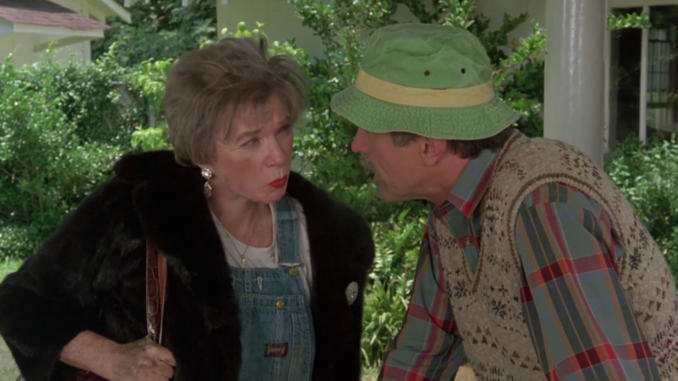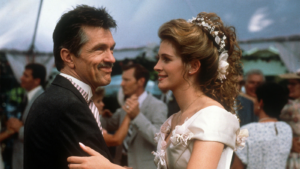
Steel Magnolias is not only a story of friendship, love, and resilience; it is also a vivid portrayal of Southern culture and identity. Set in the fictional town of Chinquapin, Louisiana, the film weaves its narrative around the traditions, values, and unique character of the American South. By grounding its story in this specific cultural backdrop, Steel Magnolias offers a rich exploration of how regional identity shapes the lives, relationships, and outlooks of its characters.
A Portrait of Southern Hospitality
One of the most defining aspects of the film is its depiction of Southern hospitality. The women in the story embody this cultural value through their warmth, generosity, and willingness to help one another. Truvy’s beauty salon serves as a microcosm of Southern community life—a welcoming space where everyone is treated like family.
The characters’ sense of duty toward their neighbors and loved ones reflects the Southern emphasis on communal bonds. Whether it’s organizing a wedding, hosting a holiday gathering, or supporting a friend in need, the women’s actions demonstrate a collective commitment to showing care and kindness, even in the smallest gestures.
Tradition and Rituals
Southern culture is rich with traditions, many of which are showcased in Steel Magnolias. Shelby’s wedding is a prime example, with its elaborate planning, festive atmosphere, and emphasis on family. The wedding reflects the South’s love of celebration and ritual, where events often serve as milestones that bring communities together.
The film also highlights the importance of faith and spirituality, another cornerstone of Southern identity. Characters like Annelle, who finds solace and purpose in religion, reflect how faith can be both a personal and communal source of strength. These rituals and beliefs ground the characters, providing them with stability and meaning amidst life’s uncertainties.
Southern Wit and HumorFood plays a central role in Southern culture, and Steel Magnolias pays homage to this through its many scenes of shared meals and gatherings. From the spread at Shelby’s wedding to the comfort food brought to M’Lynn’s home after Shelby’s passing, food is portrayed as a symbol of care and connection.
These scenes emphasize the Southern tradition of gathering around food to celebrate, mourn, or simply share stories. The act of cooking and eating together becomes a way for the characters to express love, offer comfort, and reaffirm their bonds.

A Love for Nature and Simplicity
The setting of Chinquapin, with its lush greenery and small-town charm, reflects the Southern appreciation for nature and simplicity. The beauty of the outdoors serves as both a backdrop and a metaphor for the characters’ lives—filled with both storms and moments of serene beauty.
The characters’ attachment to their hometown underscores the Southern value of rootedness. Despite their challenges, they find strength and identity in their connection to the land and their community. This sense of place is integral to the story, shaping the characters’ values and providing them with a sense of continuity.
A Reflection of Southern Resilience
At its heart, Steel Magnolias is a story of resilience—a quality deeply associated with Southern identity. The characters face personal tragedies and challenges with grace, humor, and an unyielding determination to carry on. This resilience is not individual but collective, rooted in their shared culture and the strength they draw from one another.
Through its vibrant portrayal of Southern life, Steel Magnolias transcends its specific setting to resonate with audiences everywhere. Its depiction of hospitality, humor, and community offers a universal message about the power of connection, while its grounding in Southern culture adds depth and authenticity to its narrative.
In celebrating the unique traditions and values of the South, Steel Magnolias becomes more than just a story of friendship—it is a tribute to the spirit of a region and its people.
The film’s humor is deeply rooted in Southern wit—a blend of sharpness, charm, and self-awareness. The characters often use humor to navigate difficult situations, a hallmark of Southern resilience. Lines like Ouiser’s iconic “I’m not crazy; I’ve just been in a very bad mood for 40 years” or Clairee’s playful jabs at Ouiser capture the distinct flavor of Southern humor, which often relies on clever wordplay and exaggerated personalities.
This humor is not only entertaining but also reflective of a broader cultural tendency to find joy and absurdity in life’s challenges. It is through their shared laughter that the characters bond, cope, and celebrate their shared Southern identity.
The Role of Food and Gathering
